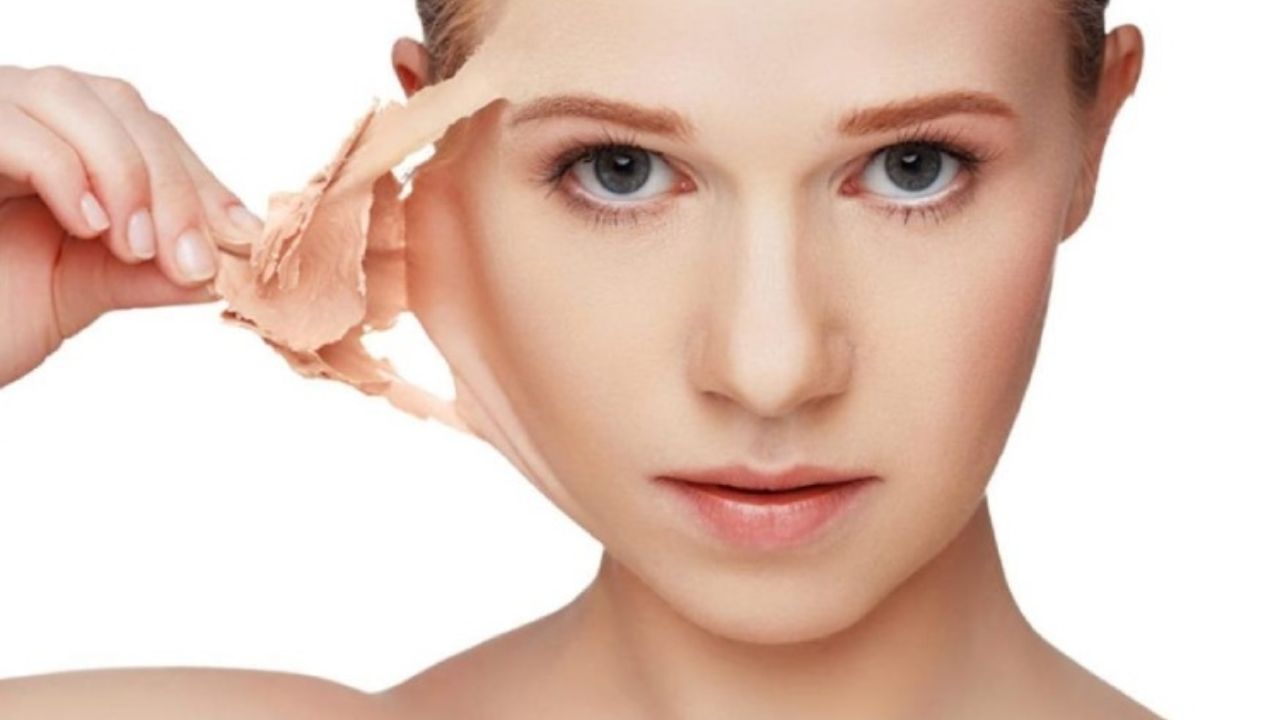Things You Must Know Before You Try A Chemical Peel: Are you interested in skin rejuvenation and achieving a more youthful appearance? If so, a chemical exfoliation may be exactly what you require! Chemical peels are an effective method for enhancing the skin’s texture, tone, and overall health. Before committing to this popular skincare treatment, there are a few factors you must understand. From comprehending the various types of chemical peels to preparing for the procedure and navigating recovery, we have you covered. Continue reading to learn everything you must know before attempting a chemical peel.
Things You Must Know Before You Try A Chemical Peel: What is an acid peel?
A chemical peel is a cosmetic procedure that employs acids to exfoliate the outermost layer of skin, revealing younger-looking, softer skin underneath. This exfoliation can reduce the appearance of fine lines, wrinkles, acne scarring, hyperpigmentation, and other common skin concerns.
There are various types of chemical peels dependent on the required level of intensity for each individual’s skin type and concerns. Light or superficial peels operate on the epidermis’ exterior layer, whereas medium-depth peels penetrate deeper into the epidermis’ layers. Deep peels are reserved for more severe conditions and require a prolonged period of recovery.
A licenced skincare professional will apply one or more acid solutions to your face or body using a brush or gauze applicator during a chemical peel session. During application, you may experience a moderate stinging or burning sensation, but this typically subsides after a while.
Before choosing a chemical peel, it is essential to consult with an experienced esthetician, as it may not be suitable for everyone, particularly those with sensitive skin who may experience adverse reactions to harsh chemicals.
The various kinds of chemical treatments
There are three primary varieties of chemical peels: superficial, medium, and deep. Superficial peels are the gentlest type of chemical peel and utilise a benign acid, such as alpha-hydroxy acid (AHA), to exfoliate the outermost layer of skin. This can be performed as frequently as every two weeks.
Trichloroacetic acid (TCA) is used to penetrate deeper into the epidermis during medium-depth peels. They are excellent for treating fine lines, pigmentation irregularities, and acne scars. Typically, recovery duration is one week.
Phenol is used in deep peels to penetrate the epidermis and remove damaged cells. Due to its intensity, this type of peel necessitates a lengthy recuperation period of two to three weeks and should only be performed by a licenced professional.
Before deciding on the appropriate form of peel, it is essential to discuss your objectives with a dermatologist or aesthetician. Keep in mind that while each variety has distinct advantages, it also entails varying degrees of risk and recuperation time.
Positives and negatives of a chemical exfoliation
Chemical peels are one of the most prevalent skin treatments used to treat a variety of skin disorders. However, similar to other treatments, chemical peels have both advantages and disadvantages.
One of the greatest benefits of chemical peels is their ability to reduce facial wrinkles and fine lines. In addition, they eliminate dead skin cells from the face, leaving it smoother and more radiant than before. In addition, this treatment can diminish acne scars and age marks.
However, you must consider the disadvantages of chemical exfoliation treatments. For instance, if chemical peels are performed inadequately or without proper aftercare instructions, your skin may become inflamed, leading to redness and irritation.
In addition to the risk of inflammation, deeper chemical peels require lengthier recovery periods and more aftercare instructions than their lighter counterparts.
Last, but certainly not least, is the cost; depending on where you reside, a single session of a professional-grade deep peel may cost between 5,000 and 25,000 rupees.
Preparation for a chemical exfoliation
Preparing for a chemical peel is essential for achieving optimal results and minimising potential risks. Here are some steps to consider prior to your scheduled appointment:
It is essential to schedule a consultation with a licenced dermatologist or aesthetician, who will evaluate your skin condition, medical history, and suitability for the procedure.
2. Avoid Direct Sunlight, Tanning Beds, and Self-Tanner It is recommended to avoid direct sunlight, tanning beds, and self-tanner for at least one week prior to your appointment.
Stop Using Certain Products: Two weeks prior to treatment, discontinue the use of products containing retinoids and alpha-hydroxy acids, as they may interfere with the peel’s effectiveness.
4. Discontinue Hair Removal Methods: 48 hours prior to your scheduled appointment, refrain from waxing or grooming the area to be treated.
5. Moisturise Your Skin routinely: Keeping your skin hydrated after a peel is essential for maintaining healthy-looking skin; therefore, you should start moisturising routinely two weeks in advance.
By adhering to these guidelines, clients can prepare themselves physically and psychologically for their impending chemical peel procedure, achieving glowing results without jeopardising their health.
What to anticipate following a chemical peel?
Your skin may feel taut and appear scarlet or brown after a chemical peel. This is absolutely typical! You may also experience peeling or flaking, depending on the intensity of the peel. This is simply the shedding of dead epidermis cells, so have no fear.
It is essential to remember that everyone’s experience with a chemical peel will vary depending on their skin type and the type of peel they received. Nonetheless, there are a few general outcomes you can anticipate following a chemical peel.
During the first few days following your treatment, for instance, you should avoid direct sunlight and apply ample SPF when venturing outside. During this period, you should also avoid harsh skincare products and exfoliants.
In addition, it is essential to keep your skin hydrated by drinking plenty of water and applying a moisturiser on a regular basis – particularly if peeling occurs.
Picking or scratching at disintegrating or peeling skin can result in scarring and prolong the healing process. Instead, allow the dead epidermis cells to slough off naturally.
Chemical peels may cause transient discomfort or side effects, but these typically disappear within a week.
Follow your healthcare provider’s post-treatment instructions precisely to ensure proper healing and prevent complications.
By adhering to these basic guidelines, you’ll be able to recover from a chemical peel quickly and safely, all the while enjoying gorgeous, rejuvenated skin!
The conclusion
A chemical peel can provide the epidermis with numerous benefits. Before attempting one, it is essential to conduct research and consult a professional. Make sure you are aware of the various varieties of peels and choose the one that best suits your skin type and concerns. Proper preparation for a chemical peel can aid in achieving optimal results and minimising potential risks and adverse effects. Lastly, following the recommended postoperative care instructions will help you accomplish the best possible outcome.
Remember that chemical peels are only one component of a proper skincare regimen and should be used in conjunction with other healthy habits, such as staying hydrated, applying sunscreen daily, consuming a balanced diet, getting enough sleep, and managing stress.
By keeping these factors in mind prior to undergoing a chemical peel, you can achieve excellent results while avoiding complications.


















